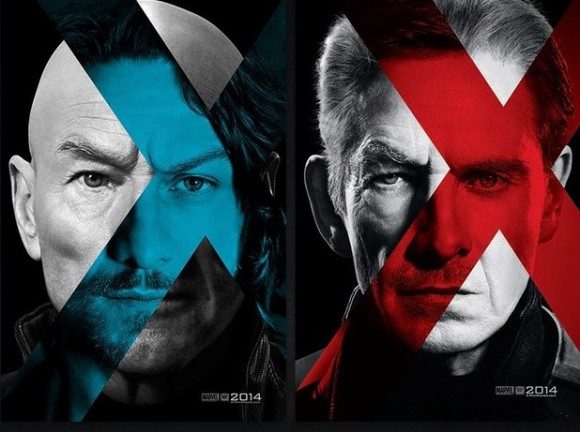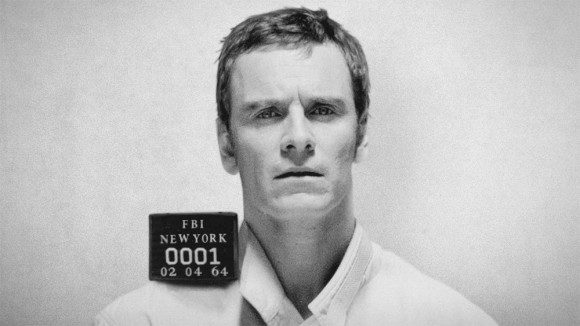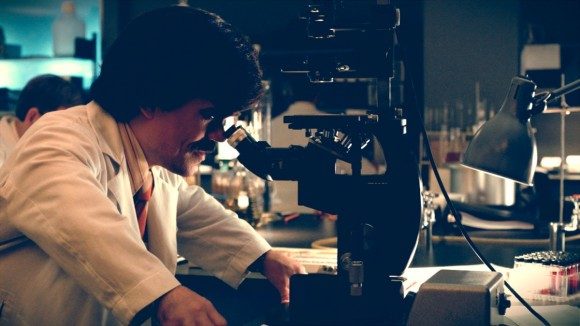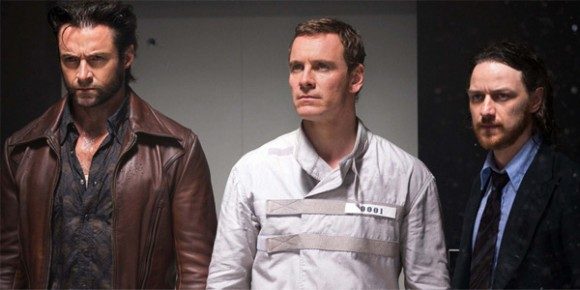So this is a review of X-Men: Days of Future Past. Or what might otherwise be called X-Men: The Big Reset Button. I’m sorry if you think that’s a spoiler, but that’s what this movie is. It’s an exercise in wondering where the X-Men movie franchise might be today if X-Men: The Last Stand never happened, and what it might be if given a blank slate to tell new stories. (And no, Charles Xavier’s death and present “resurrection” is never addressed in the least, but does anyone really care? It was stupid to kill him in the first place.)
We’re now the franchise’s seventh film, a movie that has the unenviable task of being X-Men’s Revenge of the Sith – the movie which is forced to make enough nods to the good X-Men movies to make fans happy while also making sure it doesn’t violate strands from a couple very separate stories, while also trying to tell a story in its own right. And if you’re counting, subtract the two standalone pictures (X-Men Origins: Wolverine and The Wolverine)and you’ve got three movies on one side of the equation (X1, 2, and 3 – though again, there’s about ten seconds worth of anything from the third movie referenced here) and just one on the other (X-Men: First Class). What’s missing? Let’s pray it such a film were to ever be made the metaphor wouldn’t extend to quality, but the X-Men franchise never had its Attack of the Clones.
As we come in on the movie, there are two timelines to keep track of. One theoretically happened sometime after X-Men and X2 while the other is more or less a sequel to First Class. Except that a lot’s gone on between First Class and our ‘70s America timeline in Days of Future Past. Namely, Xavier’s gone off the deep end with a heroin-level addiction to a drug that somehow un-paralyzes his back at the expense of his mutant powers, Magneto’s been imprisoned for playing a role in the JFK assassination, and Mystique is now on a vengeful rampage against humans that, according the version of Professor X in the future timeline, will start a chain of events that nearly wipes out both mutants and human kind at large. If it sounds like you missed a class somewhere between First Class and Days of Future Past, you wouldn’t be alone. Or maybe you just didn’t remember all the salient details from a couple rather dense marketing ploys.
Aside from these gripes of what maybe should have been, the plot actually gets its ducks in a row pretty quickly. Wolverine’s consciousness is sent back to his ‘70s self – they say it’s not time travel, so we buy it until after the movie when we realize it’s actually just wishful thinking – so he can warn folks that Mystique can’t kill a certain Bolivar Trask, played by Peter Dinklage, inventor of anti-mutant machines known as sentinels, or else all hell will break loose. From there, the action-heavy plot proceeds competently enough, but I seriously wonder whether someone who has never seen an X-Men movie before will enjoy this at all.
And this is where the real paradox of the film comes into play. For entirely subjective, comic-book-appreciative reasons I enjoyed the movie. About as close as I can get to explaining why in reasons other than “I think the X-Men are cool” was that A) this franchise still has more compelling characters than a bunch of other mutant-ish properties, and B) I liked the puzzle of trying constantly to figure out if the movie was going to violate its own convoluted continuity, and if it did, which parts were going to be conveniently ignored (*cough* The Last Stand *cough*). In all fairness there are several details which could be called problematic if you were to try arranging these seven movies in a chronology. It can be done without much trouble on a large scale, but Professor X’s Miracle Walk-Again Drug! poses some issues when you get to The Last Stand and start to wonder why no one in his immediate circle connected the “cure” there with his narcotic of choice in the ‘70s. Likewise Days of Future Past turns Magneto into some cross between Hitler and John Wilkes Booth, which makes it a little crazy if you were to watch this before X-Men, and discover that suddenly no one knows who he is again.
At this point, I realize I haven’t really answered the question of, “Is this a good movie?” yet. Well…
I guess?
What you will get here is exactly what you expected, whatever that was. Hate the X-Men movies and expect it to be terrible? You’ll see every flaw, and there are many. Love them and want this one to be the best X-Men yet? There’s plenty to confirm your suspicions. For me, I was somewhere in the middle, my inner film critic at war with the part of me that just wanted to enjoy X-Men because I like superheroes, and the X-Men are compelling for being some of the more humanly grounded superhumans out there.
As I write it, I also realize that paragraph may seem like a cop out. But the truth is this movie is perfectly innocuous. It’s just imaginative enough not to be stale, active enough not to be boring, conscious enough not to be entirely mindless. Because as much as it’s a movie, it’s a franchise reset. From here the X-Men could go anywhere and with any character, whether this set of mutants do make a future appearance or not.
The Verdict: 3 out of 5
Back when I reviewed Captain America: The Winter Soldier, I noted that at this point most audiences ought to pretty well know what they’re signing up for when sitting down to watch a Disney Marvel movie. This is the same idea in spades. No, it’s not half as bad as Origins or The Last Stand. No, it’s not as good as the very best the series has had to offer. You’ve got quality actors in Hugh Jackman, Jennifer Lawrence, Michael Fassbender, James McAvoy, and Patrick Stewart doing most of the work. There are some pretty cool mutant power driven action sequences, including bits with some new mutants that are fun. (Side note – while Quicksilver is thrown away just as unceremoniously as Gambit was in Origins, he’s actually compelling during the time he is on screen, so he sort of gets a pass). Is it a tightly drawn narrative, or a movie that transcends its genre? No. But you didn’t expect that, did you?




